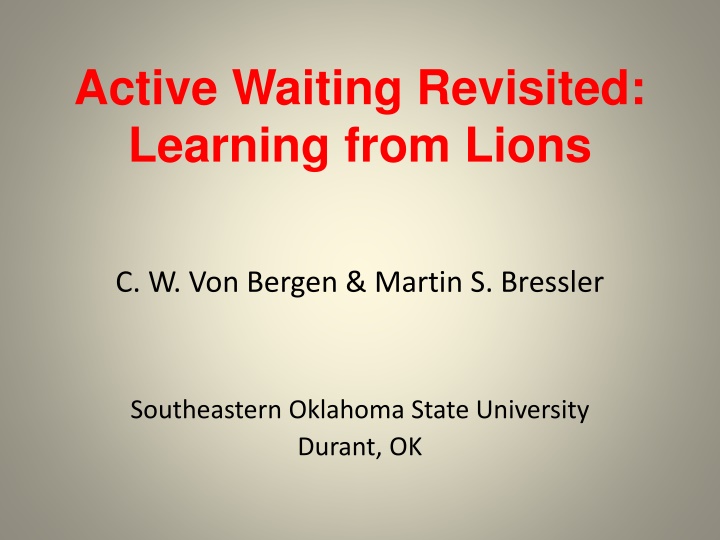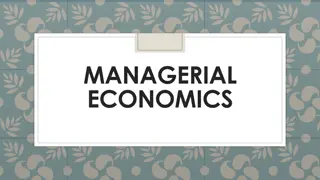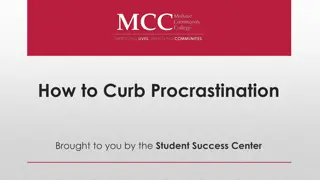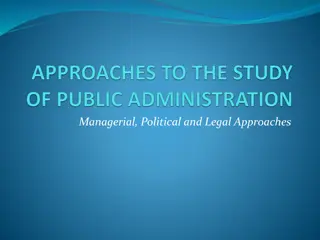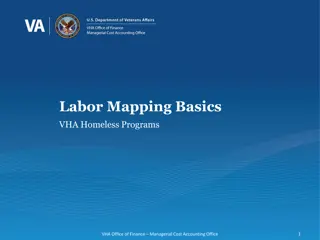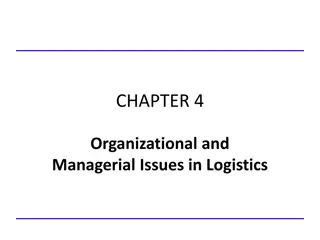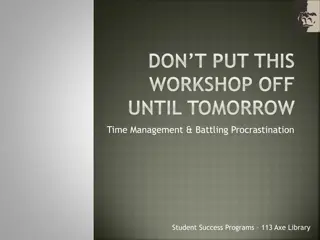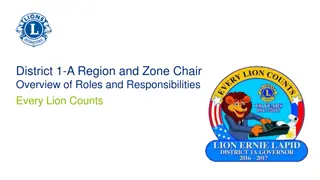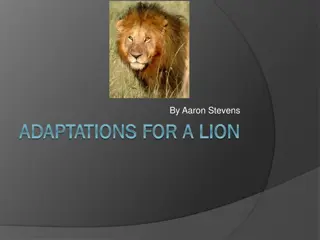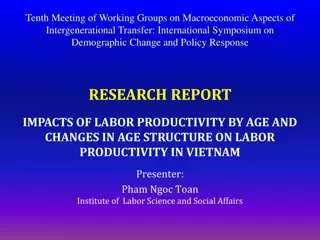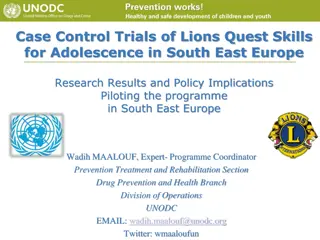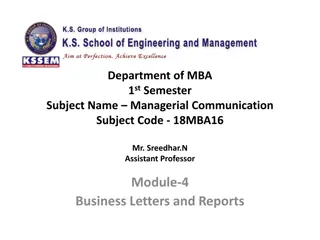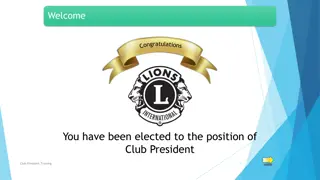Learning from Lions: Action, Procrastination, and Managerial Productivity
Every morning, the African gazelle and lion embody the essence of action and survival. While swift action is vital for success, procrastination and unproductive busyness can hinder progress. Understanding the balance between action and strategic waiting, as observed in lions, can enhance managerial decision-making and overall productivity in organizations.
Download Presentation

Please find below an Image/Link to download the presentation.
The content on the website is provided AS IS for your information and personal use only. It may not be sold, licensed, or shared on other websites without obtaining consent from the author.If you encounter any issues during the download, it is possible that the publisher has removed the file from their server.
You are allowed to download the files provided on this website for personal or commercial use, subject to the condition that they are used lawfully. All files are the property of their respective owners.
The content on the website is provided AS IS for your information and personal use only. It may not be sold, licensed, or shared on other websites without obtaining consent from the author.
E N D
Presentation Transcript
Active Waiting Revisited: Learning from Lions C. W. Von Bergen & Martin S. Bressler Southeastern Oklahoma State University Durant, OK
Every morning in Africa, a gazelle wakes up. It knows it must run faster than the fastest lion or it will be killed. Every morning a lion wakes up. It knows it must outrun the slowest gazelle or it will starve to death. It doesn t matter whether you are a lion or a gazelle. When the sun comes up, you better start running (Friedman, 2005, p. 114).
Emphasis on ActionSpeedy Action The quickest, swiftest, and fastest live another day Fast action enables firms to thrive and flourish A bias for action: Ready, fire, aim (Peters & Waterman in In Search for Excellence) Taking initiative Being proactive Making things happen Paralysis of analysis Procrastination
Procrastination Today the term has disparaging connotations Stalling Putting off Postponement Until the industrial revolution the term implied Informed delay Wisely chosen restraint A sophisticated, astute decision when not to act
Learning from (Wise) Lions Lions must be smart in running Inexperienced young lions that reflexively chase targets suffer many failed hunts. The more successful hunters carefully scan the horizon and wait with patience and focused attention for the right circumstances to arise and then act. It is not so much the lion s speed nor its sheer size and strength alone or else we would still be seeing saber-toothed tigers and woolly mammoths but its cleverness that is the key to its survival. Even if they are hungry, wise lions will pass on a meal rather than risk a reckless attack.
Managerial Unproductive Busyness and Activity Addressing trivial operational issues Limit their search and consider too few options Pay too little attention to people who are affected by a decision Fear being seen as indecisive, so they make quick decisions Immediate action makes managers seem to be on top of things Avoid participation because it takes too much time
This leads to Cultures of frenzy and unreflected activity that seem to dominate many organizations
Active Waiting A process in which individuals intentionally hold back from impetuously diving into making irreversible commitments of resources. Less a matter of time management but of emotional management Pausing reflectively and purposely; occurs in the space between stopping to recognize symptoms and prescribing a treatment
Two Cognitive Modes of Thinking Automatic Thinking Uncontrolled Effortless Instinctive Intuitive Fast Unconscious Reflective Thinking Controlled Effortful Deliberate Rational Slow Self-aware
Implementing Active Waiting Be doubtful Generate alternatives Assess alternatives Be flexible Implement slowly Take action
Be Doubtful Doubt is creative because it allows for alternative ways to see the world Uncertainty helps to slow us down Some self-doubt abut one s performance efficacy provides incentives to acquire the knowledge and skills needed to master challenges (Bandura & Locke, 2003, p. 96)
Assess Alternatives Legality Ethicalness Economic feasibility Practicality
Implement Slowly In martial arts there is a saying: You have to go slow to go fast.
Conclusion I insist on a lot of time being spent, almost every day, to just sit and think. That is very uncommon in American business. I read and think. So I do more reading and thinking, and make less impulse decisions than most people in business. Warren Buffet
